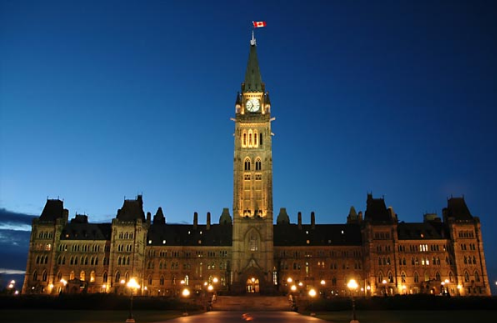By Joe Johnson (Contributor) – Email
Date Posted: September 30, 2011
Print Edition: September 28, 2011
Heigh-Ho, Heigh-Ho, it’s off to work they go. That is, like the seven dwarfs, our 41st Canadian Parliament is back hard at work. Only instead of hammering away in a mine, they’ll be hammering away on bills.
September 19 saw the Parliament resume with a very different looking government. Stephen Harper’s Conservative party has finally won it’s much sought after majority, making it potentially one of the most powerful ruling parties to grace the walls of the House of Commons. The NDP has now become the official opposition but are left without their charismatic leader. The once powerful Liberals are relegated to a distant third. Sovereignist party, the Bloc Quebecois, has all but been obliterated by the NDP. And the Green party has finally broken through with their leader Elizabeth May winning the party’s first ever seat.
Truthfully, I am afraid of the Conservatives. For years they have been held in check by being limited to a minority government. And perhaps this is why they have finally been able to pull through on the last election; the populace has now had enough time to become comfortable with Harper in power.
But we haven’t really been able to see if the Conservatives have that ‘hidden agenda’. Sure, if watched closely enough it was always evident the sort of bills they would pass, but their more extreme policies were always limited in order to obtain enough support from the opposition.
We no longer have that check in place. The opposition parties are all in flux as, outside of the Greens, are being helmed by interim leaders. Nycole Turmel is serving as the NDP interim leader. Bob Rae has taken the role of interim leader for the Liberals while they look to replace the very bland Michael Ignatieff. And the Bloc, with only four seats aren’t currently in the conversation of power, but they too are seeking a new leader to take over from the fiery Gilles Duceppe.
So what are some of the first things to be on the table for this government? Well, taking up most of that table space is the crime omnibus bill. A collection of nine separate, hard-hitting, pieces of legislation that the Conservatives had been trying to get through the last Parliament are now set up to be hammered through in one shot. Titled “Safe Streets and Communities”, the bill particularly targets young offenders, drug, and child exploitation crimes, all of which are on the rise. These do need to be addressed.
However, the crime rate in Canada has actually been steadily declining over the past 20 years, with a drop of 5 per cent in the last year alone. When Justice Minister Rob Nicholson was on CTV’s Power Play last week, he made the statement “We don’t govern on the basis of statistics, we govern on the basis of what Canadians have told us and what we believe is in the best interest of the country.” So we essentially have the government saying that statistics don’t matter, that truth doesn’t matter. On top of this, some of the mechanisms that will be brought in, such as mandatory minimum sentences, have been proven to do little in preventing crime. As well, even more pressure based on the prosecutions from this bill will be placed on Provincial courts – courts that can barely handle case loads as they are now. Finally, the government refuses to attach costs to this massive piece of legislation.
There are changes that need to take place in how we handle crime in this country, but perhaps laws based on an ideological stance is not the way to fight crime.
Also up is the real priority, the economy and job creation. I’ll give credit to Harper and Finance Minister Jim Flaherty, they have kept themselves from tampering with the Canadian economy. It was only a couple of years ago, before the financial meltdown, that they were looking to move towards the deregulation of our banking system which would have opened it up to greater risk. But now with massive uncertainty in the world economy, they’re taking a very low-risk approach. And they have to, as we’ve seen our dollar just drop below the American – thanks to the selloff of commodities and reinvestment in the safe haven of the greenback. We’re also seeing banks not lending, and people not spending. We have the European debt crisis to worry about, and even China’s economy is beginning to look a little unsure. But in spite it all, Canada is still set to outperform any other country in the G7.
So with the Bank of Canada keeping interest rates extremely low for some time still, it’s also time for the government to get investments and jobs rolling. This will prove to be tough, though, with the American economy remaining stagnant. But Canada’s Economic Action Plan, the government’s marketing tool to promote their jobs plan, is moving forward with temporary tax credits for small businesses, funding for the completion of the northern Dempster Highway, and more funding for R&D of clean energy. These plans, focused where they should be, are based primarily on private sector job growth. The government is also going to continue with establishing free trade agreements, such as the ones with Panama, Jordan, and most recently Columbia.
It’s going to be a very raucous ride in Ottawa over the next four or five years, now that the sheep’s clothing has been shed.


